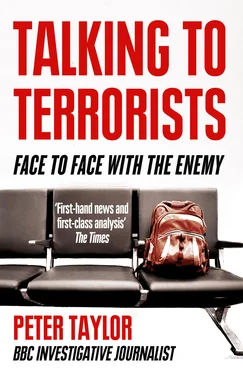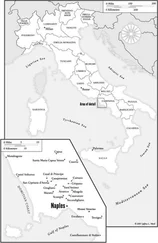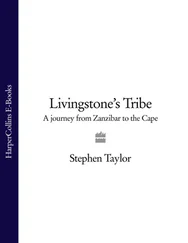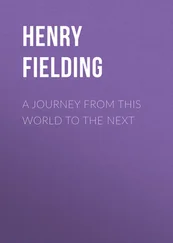A grey, humid morning broke over the mudflats. It didn’t seem like a good omen. I checked my 8mm Bolex camera, cassette recorder, batteries and spare film and sound cassettes. Those were pre-video days, when film and sound had to be synchronised back in London. I dreaded the thought of achieving my goal, but returning to London with blank tapes because I hadn’t checked the equipment thoroughly, or had pressed the wrong button.
My driver arrived as arranged, and beckoned me into a battered vehicle which, like the hotel, had seen better days. We then drove for what seemed forever, out of Luanda and into the bush. The car finally stopped at a clearing in the middle of nowhere, where my friend the Commissar was waiting. ‘Good morning,’ he said. ‘Please wait here.’ I still had no idea what was going to happen, but did as directed with fingers crossed, camera and tape recorder at the ready. Then suddenly I heard singing, and a column of around a dozen young men and women emerged from the bush about two hundred metres away. They were dressed in green and khaki combat fatigues, wearing camouflage caps and carrying AK-47s, the signature weapon of insurgents the world over. I nervously started to film, hoping I’d got the focus and aperture right. ‘Mandela, Mandela, Mandela. Freedom is our song,’ they sang as they marched to a spreading baobab tree right in front of me.
There, shaded from the early-morning sun, another Commissar proceeded to give them a lesson in Marxist economics, outlining how, when the revolution came, South Africa’s banks and mines would all be nationalised so the wealth would be in the hands of the people. There was then a question-and-answer session on the ‘struggle’. ‘We shall not submit,’ one of the student guerrillas told the teacher. ‘We will fight back with every means in our power in defence of our freedom, our country and our future.’ ‘Precisely! Great, comrade!’ exclaimed the teacher, waving his arms in enthusiastic appreciation.
The lecture over, it was time to do what I had come for, to talk to the young ANC recruits about the Soweto massacre and their intentions. They sat in a semi-circle and first sang a song about 1976. I talked to one young woman in combat fatigues with three of her top teeth missing. ‘In 1976 we were schoolchildren fighting with stones against guns,’ she said. ‘I saw the necessity to go out and take guns and face a gun with a gun.’ One of her comrades echoed the sentiment. ‘Our people, the African majority, have become convinced out of their own bitter experience they will have to reply to the gun by the gun, and that the thousands of young people awho were murdered in 1976 shall surely be avenged.’ But what made them think they could defeat the most powerful army in Africa? ‘There’s not even a single enemy who can defeat a people who are fighting a just cause, no matter how powerful it may be,’ the young woman replied. ‘It was proved in Vietnam.’ She and her comrades had obviously been well schooled in what to say. I pointed out that in Vietnam the Americans weren’t defending their own country, as white South Africa was. ‘Even the Boers themselves, we’re going to defeat them,’ she said. ‘We are determined to fight and kill them.’ I then asked if she thought that one day Nelson Mandela would be released. ‘Yes,’ she said. ‘The government will not release Nelson Mandela, but we will release him.’
I had what I came for, but there was no guarantee that film and sound would come out. Had I pressed the right buttons? Had I got the focus right? Had I remembered to turn the tape recorder on? All those things went through my mind as I was driven back to my hotel by an ANC driver. When he dropped me off, I asked him to wait while I went to get a bottle of Scotch I’d bought in case I was in a position to say thank you to someone. I handed it to him and asked him to give it to the Commissar with my thanks. He promised he would, and said he would pick me up in the morning and take me to the airport.
The following morning he arrived late, and almost paralytic. I suspected he’d drained the bottle himself. What should I do? Risk going with him, or try to find a taxi at the risk of missing the plane? I wanted to get out of Angola as quickly as possible with my valuable material, so I decided to take the risk, and jumped into his car. It was the hairiest ride I’ve ever taken, but we made it, and I caught the flight. Touching down at Heathrow never felt so good. Then there was an agonising wait of a week while the film was being processed. Would it come out? To my enormous relief it did. It’s the only footage in existence of ANC guerrillas training. But I wouldn’t like to go through the experience again.
The reality of reporting terrorism is that it occasionally involves facing danger. I’m sometimes asked if I’ve ever felt my life was at risk. The answer is yes.
My producer David Wickham and I had been making a Panorama programme on Israel’s withdrawal from Lebanon in 1985, following the incursion three years earlier, codenamed Operation Peace for the Galilee. We were filming with an Israeli convoy in South Lebanon that was going to resupply a forward base. I was in a car with an Israeli army minder at the front of the convoy, and David and the film crew were in an armoured personnel carrier (APC) at the back. In the middle was a large tanker bringing precious fresh water to the troops at their forward base. We were driving through a beautiful orange grove, heavy with sweet scent, when suddenly there was an explosion, and a shower of dust and rocks. The tanker had been hit by a land-mine. The explosion was immediately followed by the rattle of gunfire from the orange groves. We had been ambushed by Shiite ‘terrorists’ who were resisting the Israeli occupation of their land. My Israeli minder instinctively threw open the door of the car and pushed me out into a shallow ditch, telling me to keep my head down. He then opened up with a burst of defensive fire from his automatic rifle.
The ditch afforded only a minimum of cover, and I remember lying there and looking up into the orange groves from where the bullets were flying, and being aware that I was probably right in the line of fire. I had been under fire before, in Northern Ireland, but never quite like this. My most immediate concern was for David and the film crew in the APC. Had they been hit? Was it their vehicle that had been blown up? I couldn’t see because of the dust and general chaos. Were they dead or alive? If they were dead, I felt an odd onrush of incipient guilt that it was them and not me. In almost the same flash I thought of my wife, Sue, and my children, Ben and Sam. Would I ever see them again? All these thoughts rushed through my head in the noise and confusion of the gun battle. I had often wondered how I would react in such a situation, and in a strange kind of way it was almost a relief that at last it had happened. I found, to my surprise, that although I was shaken, I didn’t panic. In fact I felt strangely calm and clear-headed. I accepted that there was nothing that I could do except keep my fingers crossed and my head down, and lie there until the shooting stopped.
After a while an Israeli officer gave the all-clear. The gun battle must have lasted for ten or fifteen minutes. All I know is that it felt much longer. For the soldiers in South Lebanon such an ambush was almost routine. They knew they were sitting ducks as they drove through the territory of the enemy, whom they invariably referred to as ‘terrorists’. The ‘terrorists’ used the same term to describe the Israelis. To my relief, as I climbed out of the ditch I saw David’s head popping out of the turret of the APC. Each of us shouted to check that the other was all right. We both were. The driver of the water tanker was only slightly injured, as the armour protecting the vehicle had served its purpose. The orange groves suddenly seemed to smell even sweeter.
Читать дальше












